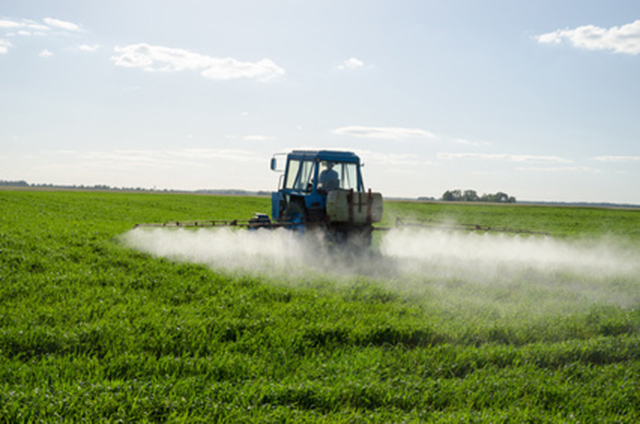A common pesticide increases ADHD risk, by changing the development of the brain’s dopamine system. The dopamine system is essential for brain function and emotional expression. The study was conducted at Rutgers University.
Study shows that common pesticide increases ADHD risk
The research team found that mice that were exposed to pyrethroid pesticide deltamethrin showed signs of ADHD, including reduced function of the brain’s dopamine system, hyperactivity, and more.
Lead author Jason Richardson believes that pyrethroid pesticide increases ADHD risk.
“Although we can’t change genetic susceptibility to ADHD, there may be modifiable environmental factors, including exposures to pesticides that we should be examining in more detail,” says Richardson.
The American Psychiatric Association states in the Diagnostic and Statistical Manual of Mental Disorders (DSM-5) that 5% of children have ADHD. However, studies show that 11% of U.S. children are affected.
An important detail in this study is that male mice were affected more than female mice, which is similar to what is observed in children with ADHD. The ADHD symptoms continued throughout the adulthood of the mice, even when the pesticide, which is considered safe, was no longer in their system.
Scientists believe that genetics are a big risk factor for ADHD. However, they have not yet found a specific gene that makes people more susceptible. Scientists also believe that environmental factors play a big part.
The research team analyzed data from the Centers for Disease Control, National Health and Nutrition Examination Survey (NHANES) from 2,123 children and adolescents. Researchers interviewed parents asking if their children had been diagnosed with ADHD. They also determined the most prescribed ADHD medications. The children with higher pyrethroid pesticide levels in their urine samples were twice as likely to be diagnosed with ADHD.
Children and pregnant women pregnant women have a higher risk of pesticide exposure because their bodies do not break down chemicals as quickly. Richardson believes studies need to be conducted to determine how pesticide exposure affects fetuses and young children.
“We need to make sure these pesticides are being used correctly and not unduly expose those who may be at a higher risk,” Richardson says.
The study showing that this common pesticide increases ADHD risk was published in The FASEB Journal.
Note: None of the information in our website is intended to diagnose, treat, cure or prevent any illness or disease. The content on our website is for educational purposes only.
DON’T FORGET to sign up for our weekly newsletter to get our latest articles, updates, free recipes and giveaways.
For the top 10 foods you must eat organic.
Antibacterial soaps pose potential risks to pregnant women and fetuses.
Does your toothpaste contain a toxic chemical?
FDA to take a closer look at antibacterial soaps.
REFERENCES:
1. “Common Pesticide May Increase Risk of ADHD.” Rutgers. Rutgers, 29 Jan. 2015. Web. 02 Feb. 2015.
2. “Developmental Pesticide Exposure Reproduces Features of Attention Deficit Hyperactivity Disorder.” The FASEB Journal. The FASEB Journal, 28 Jan. 2015. Web. 02 Feb. 2015.
3. “Data & Statistics.” Centers for Disease Control and Prevention. Centers for Disease Control and Prevention, 10 Dec. 2014. Web. 30 Jan. 2015.
4. “Understanding the Rise in ADHD Diagnoses: 11% of U.S. Children Are Affected.” Time. Time, 2 Apr. 2013. Web. 02 Feb. 2015.

















